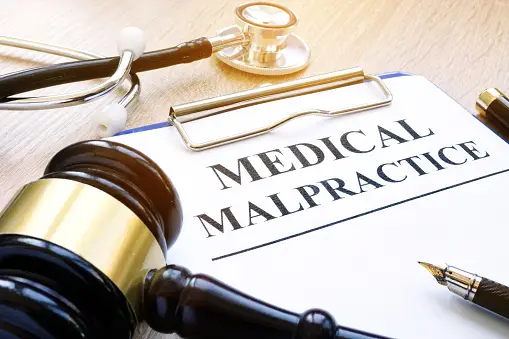
Medical malpractice is when a healthcare professional or provider fails to meet the expected standard of care, resulting in harm or injury to a patient. In Canada, medical malpractice is a serious matter with significant legal implications. The standard of care in medical malpractice cases is based on the skill, knowledge, and judgement that a reasonably competent healthcare professional in the same field would exercise in similar circumstances. When healthcare professionals breach this standard, they may be considered negligent, leading to potential liability..
The legal implications of medical malpractice can include claims for damages, which may cover medical expenses, loss of income, pain and suffering, and other related costs. In some cases, punitive damages may also be awarded to deter future negligence or misconduct. Seeking the guidance of an experienced medical malpractice lawyer is crucial to protect your rights and pursue appropriate legal recourse in such cases.
Here are some important things to remember:
Gathering Evidence
Building a strong medical malpractice claim requires meticulous documentation and evidence collection. The evidence you gather will play a vital role in strengthening your case and substantiating your claims of negligence or misconduct. Here are some key types of evidence to consider.
- Medical Records: Comprehensive medical records are crucial to a medical malpractice claim. These records include physician notes, test results, surgical reports, medication history, and other relevant medical documentation. They provide a detailed account of the treatment received and can help establish a deviation from the accepted standard of care.
- Expert Opinions: Expert opinions from qualified medical professionals in the same field as the defendant are essential. These experts can evaluate your medical records and provide their professional analysis. They will assess whether the healthcare provider breached the standard of care and caused harm or injury. Their opinions carry weight in establishing negligence and strengthening your case.
- Witness Statements: Statements from witnesses who observed the events or interactions with the healthcare provider can be valuable evidence. Witness testimony can corroborate your events and support your medical malpractice claim. These witnesses could be other healthcare professionals, family members, or individuals present during consultations, surgeries, or treatments.
- Relevant Documentation or Photographs: Any additional appropriate documentation, such as correspondence with the healthcare provider, emails, or invoices, should be gathered. Additionally, photographs that depict injuries or the aftermath of a procedure gone wrong can provide visual evidence of negligence. It is important to organize and present your evidence clearly and coherently. Ensure that all documents are properly labelled, dated, and easily accessible. This will assist your legal team in delivering a compelling argument and building a persuasive case.
Seeking Legal Representation
When facing legal matters related to personal injury, it’s crucial to seek professional legal representation. A personal injury lawyer specialises in handling cases where individuals have suffered harm or injury due to someone else’s negligence or intentional actions. These attorneys possess the knowledge and experience to navigate the complex legal system and advocate for your rights.
By engaging a personal injury lawyer, you can level the playing field against powerful insurance companies and defendants. They will work diligently to protect your interests and pursue the compensation you deserve for medical expenses, lost wages, pain and suffering, and other damages.
To find a reliable personal injury lawyer, consider conducting thorough research, seeking referrals from trusted sources, and reading reviews from previous clients. Additionally, you can consult a directory of lawyers specialising in medical malpractice cases to find an experienced attorney who can provide guidance and support throughout the claims process. These directories often include information about lawyers’ expertise, experience, and client reviews, helping you make an informed decision when selecting a legal professional to handle your medical malpractice claim.
Compensation in Medical Malpractice Cases
In medical malpractice cases, compensation is awarded to the victims to help alleviate the physical, emotional, and financial burdens they have experienced due to medical negligence. In Canada, different types of compensation are available, including general damages, special damages, and in some cases, punitive damages.
- General Damages: General damages refer to compensation awarded for non-economic losses that are difficult to quantify precisely. These damages aim to address pain and suffering, loss of enjoyment of life, mental anguish, and the impact on the victim’s relationships. The amount awarded for general damages is determined based on the severity of the injury, the long-term consequences, and the overall impact on the victim’s quality of life.
- Special Damages: Special damages are awarded to compensate for specific economic losses incurred by the victim due to medical malpractice. These may include medical expenses, rehabilitation costs, lost wages, and future income loss. Special damages are calculated by assessing the financial losses the victim has suffered or is likely to suffer due to negligence.
- Punitive Damages: Punitive damages are awarded in exceptional cases where the healthcare provider’s actions are found to be particularly reckless, intentional, or grossly negligent. Punitive damages are meant to punish the defendant and deter similar misconduct in the future. However, it’s important to note that punitive damages are not commonly awarded in medical malpractice cases in Canada, and the focus is typically on compensating the victim rather than punishing the healthcare provider.
Navigating medical malpractice claims in Canada requires a comprehensive understanding of the legal process and expert guidance. Seeking advice from a medical malpractice lawyer is essential to protect your rights and ensure a fair resolution. Gathering strong evidence, obtaining expert opinions, and following the necessary legal steps can increase your chances of success in pursuing a medical malpractice claim.
Back to blogs